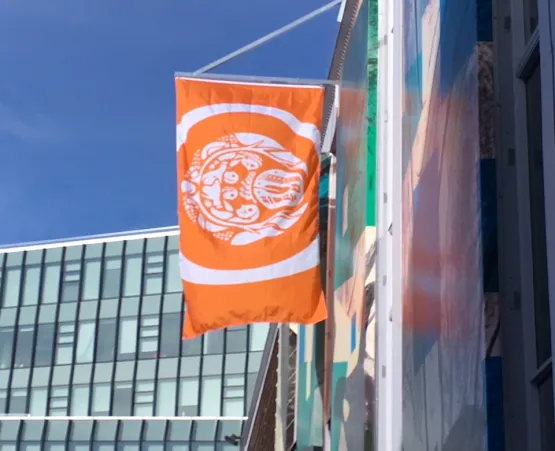September 30th this year marks the second National Day for Truth and Reconciliation, also known as Orange Shirt Day. It is a time for reflection and a time to come together in the spirit of reconciliation, and to honour those who have been impacted by Canada’s residential school system.
What is National Day for Truth and Reconciliation?
In July 2021, the Government of Canada passed Bill C-5 to make September 30th a federal statutory holiday called the National Day for Truth and Reconciliation in response to the Truth and Reconciliation Commission of Canada: Call to Action number 80, which reads: "We call upon the federal government, in collaboration with Aboriginal peoples, to establish, as a statutory holiday, a National Day for Truth and Reconciliation to honour Survivors, their families, and communities, and ensure that public commemoration of the history and legacy of residential schools remains a vital component of the reconciliation process."
Also known as Orange Shirt Day, “It is an opportunity to create meaningful discussion about the effects of Residential Schools and the legacy they have left behind. A discussion all Canadians can tune into and create bridges with each other for reconciliation. A day for survivors to be reaffirmed that they matter, and so do those that have been affected. Every Child Matters, even if they are an adult, from now on."
Why do we commemorate this day?
This day is an important step in the reconciliation process. Progress toward reconciliation is happening on our campus that resides on the unceded territories of Indigenous peoples, but we know that there is a great deal more to be done.
The findings of the unmarked graves at former residential school sites and the hidden and difficult truths revealed through these discoveries further illuminate the responsibilities post-secondary institutions like Centre for Digital Media (CDM), supported by our partner institutions - UBC, SFU, BCIT and ECUAD - have in reconciliation to engage, educate and promote awareness, so that this tragic history and ongoing impact is not forgotten.
CDM, alongside its academic partners, has obligations to recognize, not just the land on which our campus resides but also the legacy of colonization and how it has and continues to impact Indigenous communities. We need to move forward in a positive way to restore relationships with Indigenous communities through meaningful action. Reconciliation requires a sustained and ongoing commitment from each of us and a collective and shared responsibility across our institution.
How can you take part?
Please take time to participate in the many initiatives happening across our partner schools and within the broader community, to learn more about the history and ongoing legacy of residential schools and to consider what each of us can do, as individuals, to bring action to advancing reconciliation with Indigenous people. We encourage students, faculty and staff to wear an orange shirt during the week of September 26th, to pay respect and stand in solidarity with Indigenous communities across Canada.
- Participate in our Café Connect series.
- Check out Cree artist Kent Monkman’s provocative interventions into Western European and American History on the artist’s website. Kent’s work explores themes of colonization, sexuality, loss, and resilience.
- Read more about what this day commemorates.
- Join an event at one of our partner institutions: UBC, SFU, BCIT.
- Explore Vancouver Public Library's programming.
- Take in Centre of Community: An Exhibition of Indigenous Cultural Practices, which is happening at both the Roundhouse and across several city parks and includes a visual arts exhibition, performances, screening, and maker workshops. All of the works invite connection with the land, examine local histories and prompt personal reflection towards understanding Indigenous presence at the centre of community.
